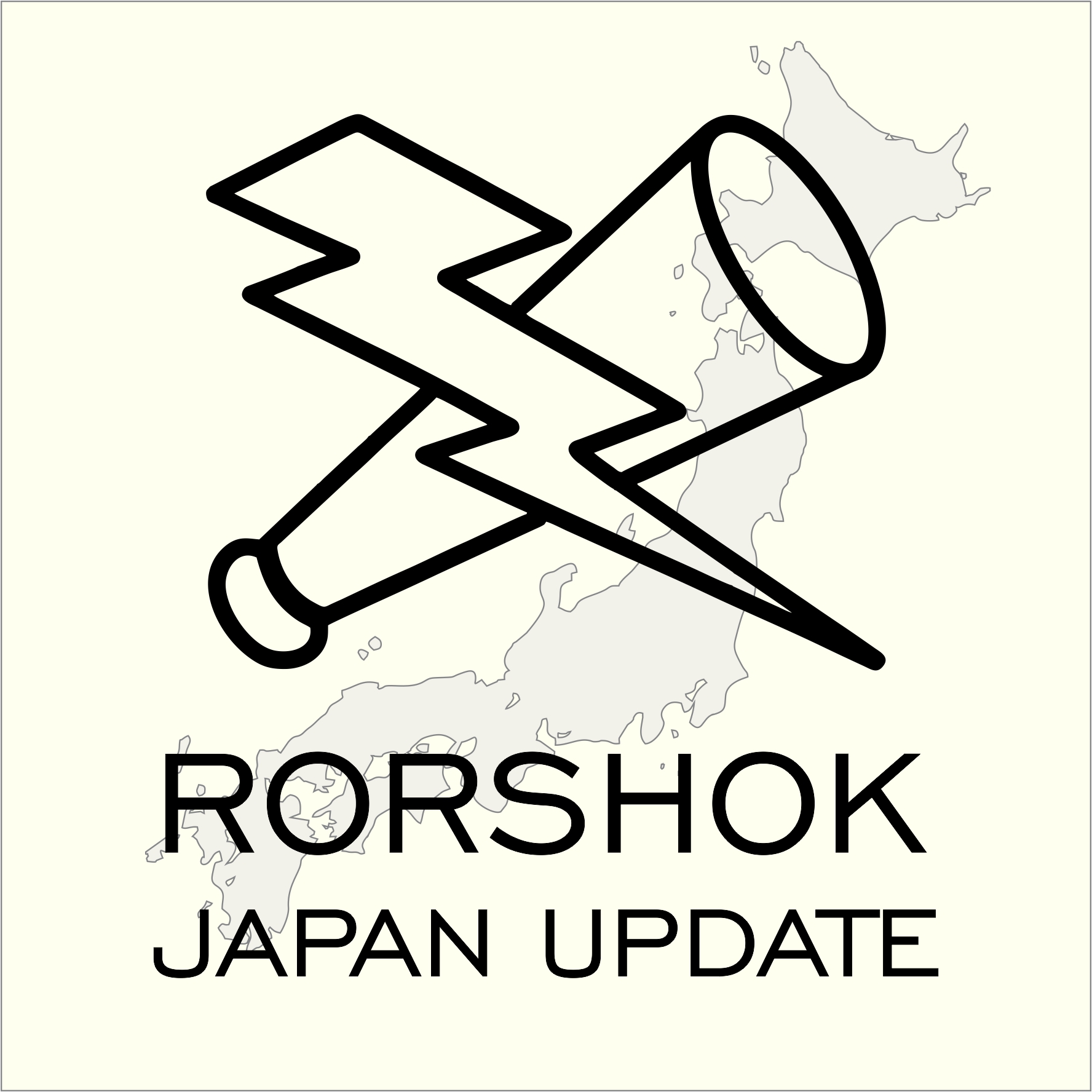Episode 48
Japan Update –Earthquake & more –30th May 2023
Typhoon Mawar approaches southwestern Japan, son of a city official kills four people, Japan’s Self-Defense Force on high alert, Japanese actor and screenwriter receive awards at the Cannes Film Festival, and much more!
Thanks for tuning in!
Let us know what you think and what we can improve on by emailing us at japan@rorshok.com or follow us on Instagram @rorshokjapan or Twitter @RorshokJapan or Mastodon @japan@rorshok.social
Like what you hear? Subscribe, share, and tell your buds.
Transcript
On Friday the 26th, an earthquake occurred in the ocean but fortunately there was no tsunami. The quake had a magnitude of 6.2 and struck Chiba Prefecture just off the coast. People felt tremors from the Kanto to the Tohoku and Tokai regions. Seven citizens sustained minor injuries: five in Chiba and two in Kanagawa Prefecture.
The Meteorological Agency also warned that Typhoon Mawar is getting nearer to the Okinawa region in southwestern Japan. The typhoon itself is likely to arrive on Wednesday the 31st, but Japan will start feeling its effects, the heavy winds and torrential rains, on Monday the 29th. Aside from Okinawa, the Hokuriku region, Gifu Prefecture, Niigata Prefecture, and the Chugoku region will be the most heavily impacted. Since the typhoon is moving slowly, the harsh weather will likely last a long time. As such, the Agency warned people to be alert for mudslides, flooding in low-level areas, rising river levels, gusts, and lightning strikes. If you are living in one of the affected regions, be sure to check where your local evacuation center is.
In more shocking news, on Thursday the 25th, a man, the son of a city assembly chief, went on a rampage in Nakano, Nagano Prefecture, killing four people. The victims included two older women and two police officers. The suspect later said that he believed the two women were saying bad things about him behind his back, and that he killed them “because he could.” An eyewitness saw the second stabbing and called the police. The suspect also had a gun, which he used to shoot and kill the officers. He then barricaded himself in his father’s home for the next twelve hours in an attempt to escape. Finally, he was arrested and taken into police custody.
On a more political front, there has been tension in the past few months regarding boats from the Chinese Coast Guard entering Japanese waters. Between January and April, Japan’s Coast Guard found eleven Chinese vessels near the Senkaku Islands in the East China Sea. In March, they began continuously transmitting their location data. However, before, they had switched it off upon entering Japan’s territory. One expert in Chinese maritime policies suggested that China might be trying to assert its presence in the Japanese region not just to Japan, but to the international community at large.
s made people wary because in: its foreign debt in April of:Meanwhile, schools across Japan report influenza outbreaks among the students, something that typically subsides by March. Experts suggest that the reason it’s persisting so long this year is due to the easing measures against COVID-19, which has given the flu virus a chance to spread that it hasn’t had in the past three years. While the pandemic measures were in effect, the number of flu cases had drastically reduced, so the population likely has a slightly weakened immunity against the flu at the moment. Niigata Prefecture has the highest average of flu patients at nearly six per week, followed by four in Yamagata Prefecture and two in Miyazaki Prefecture.
Across the world at the Cannes Film Festival, on Saturday the 27th Japanese actor Koji Yakusho won the best actor award for his performance in the movie, “Perfect Days.” This is the first time in nineteen years that a Japanese actor has won the prize. The screenwriter Yuji Sakamoto also won a prize for Best Screenplay for “Monster.”
On the topic of economics, the Japanese yen fell to 140 against the U.S. dollar, its lowest point in the past six months. The drop seems to be mainly thanks to people’s expectations that the U.S. economy will improve because of deals made during the G7 summit. Investors in currency are buying up the US dollar. This is not necessarily a bad thing, though, since when the yen is weak, tourists are more likely to travel to Japan. The tourism industry still hasn’t recovered from the pandemic, so such travel could help it regain its former strength.
In related news, Narita airport plans to increase the passenger service facility charge by 330 yen, or about two US dollars. The new charge will vary depending on which terminal a passenger uses, but it can be as much as 2,460 yen, or eighteen US dollars. This change will be implemented in all airline tickets issued from the 1st of September. It is meant to cover costs for maintenance and operation, including labor costs, which has increased due to the recent rise in air travel. Quite a few online commenters supported the idea of increasing employees’ wages, but questioned whether the money would actually go to raising airport employees’ salaries, or if it would just go into other maintenance needs for the airport.
Aaaaaand that's it for this week! You may not know it but we do updates for some other countries too. If you know anybody who might be interested, let them know. Ready? Here they are, West to East: Argentina, Venezuela, Spain, Nigeria, Poland, Serbia, Turkey, Malawi, Ethiopia, Georgia. Think of anybody?
Mata Ne!

